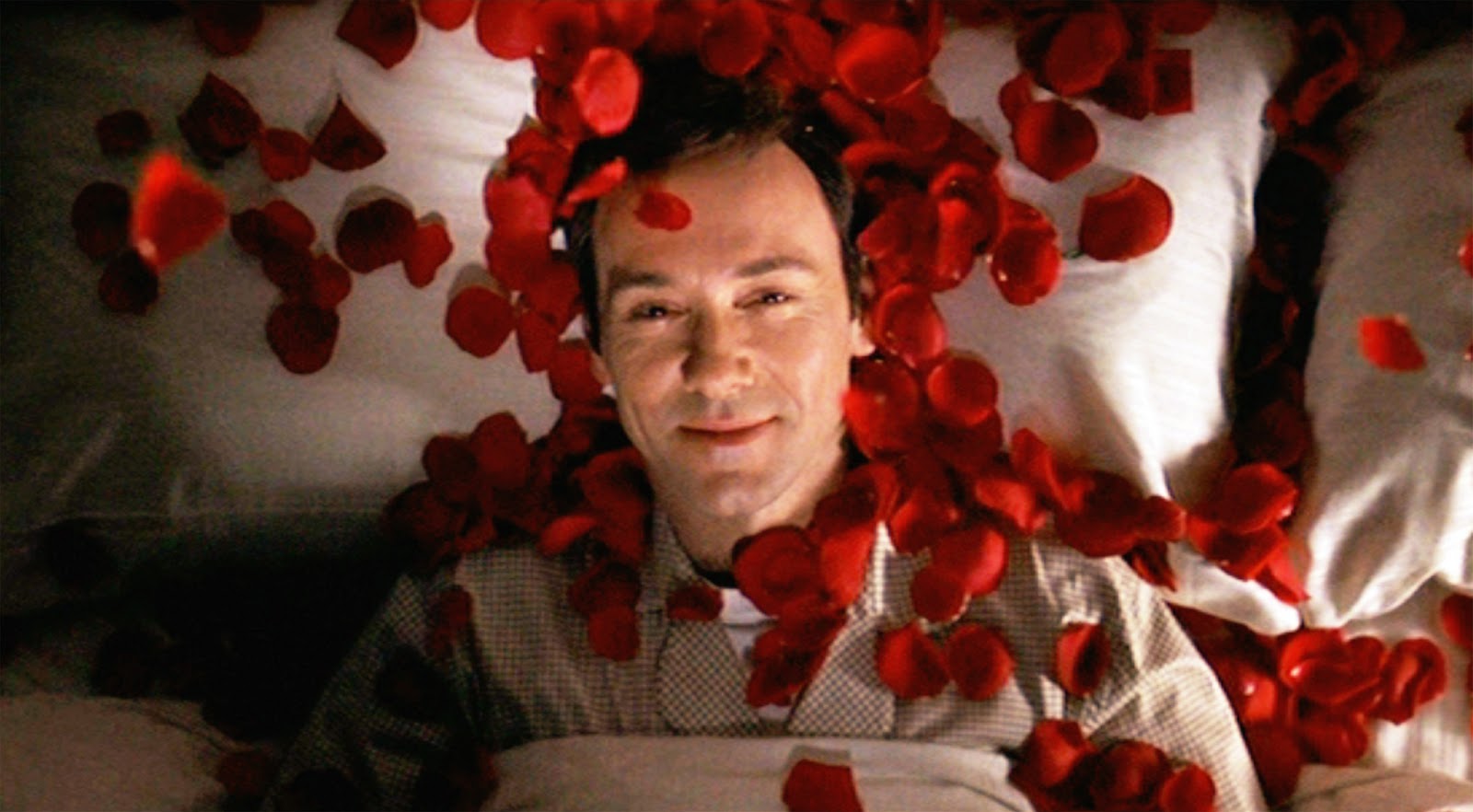
Whether they’re lazing about a sprawling hotel or becoming unglued about their jobs, characters undergoing a mid-life crisis in film are a bountiful trope. But the roles of the struggling 40-something grasping for meaning goes far beyond the creations of Sam Mendes.
Here is a list of ten films that are worth your time about characters in the depths of mid-life despair.
10. JCVD by Mabrouk El Mechri
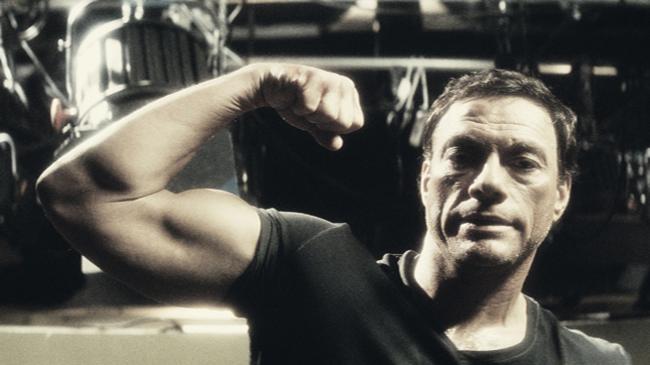
This film starring the washed up Belgian star Jean-Claude Van Damme, who plays himself, is a truly genre bending exploration of the struggle for relevance. Jean-Claude plays a character who is essentially everything that he is in reality: a discarded former star who is clinging to the last dredges of his relevance.
The film primarily follows a plot involving a bank robbery that Jean-Claude happens to find himself witnessing and, reaching to become the public’s hero once more, decides to put himself in the way of the robbers and save the hostages on his own. His effort to do so, however, falls short as the police mistakenly assume he is part of the instigators and manage to eventually arrest him for the extortion of $465,000.
Thus he sinks even farther away from his aspiration to re-vamp his career into something recognizable again and he is locked away, reduced to teaching karate moves to prisoners behind bars.
One of the films famous sequences involves an un-cut six-minute sequence of Jean-Clause behaving how he sees himself and how he desires to be seen by others. He systematically saves the day within a film-shoot by round-kicking his enemies and rescuing vulnerable citizens.
Following this, the actor sits down and stares directly into the camera lens, breaking the fourth wall and seemingly communicating to the audience themselves.
During this interlude the man emotionally breaks down while telling a narrative very close to the actor’s own story. Working in the same vein as Jodie Foster’s The Beaver, which stars Mel Gibson, the film is an intriguing look at the perspective of film stars who have lost their audience and consequently their purpose.
9. Fantastic Mr. Fox by Wes Anderson

What Wes Anderson consistently prevails in is the ability to create twee, rose-colored universes that manage to haul along subversive meaning in the process.
Fantastic Mr. Fox, his 2009 wide-release starring George Clooney, is no exception. His re-imagined vision of Roald Dahl’s classic children’s novel is infused with the title character’s struggle to find purpose in a life of monotonous routine.
Having promised his wife, Felicity Fox, to forgo his foolhardy livelihood of poultry theft in favor of a safer alternative, Mr. Fox finds himself half-heartedly settling for a life free of danger as a newspaper columnist.
Anderson artistically embellishes a classic mid-life struggle among this material that stretches the source text and adds nuance to a straightforward children’s story.
At one point Mr. Fox philosophically asks his friend who he is in the way of “existentialism,” after resolving to try his hand at one last big theft. In a flurry of vibrant autumnal yellows and folk music the parade of animals is swept into a dangerous quarrel between the human farmers being burgled for the sake of Mr. Fox’s ennui.
The great “cluster-cuss” that plagues the animal world in this adaptation is born from a truly apt vision of middle-age boredom and restlessness.
8. Midnight in Paris by Woody Allen
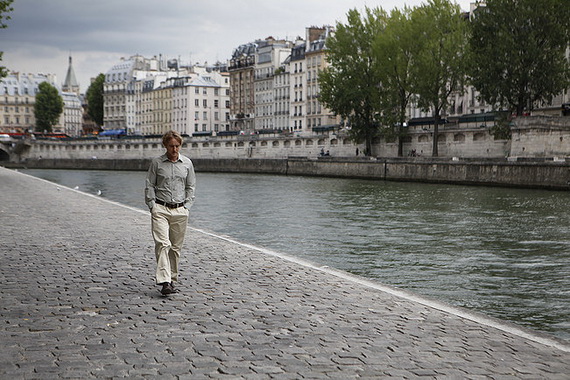
One of Woody Allens most successful contributions of recent years, the nostalgically delightful Midnight in Paris, is a tender homage to the longing everyone shares at one point of another: a yearning to live in a simpler time.
This theme is presented through the screenwriter Gill, played by Owen Wilson, who is on a trip to Paris with his ill-matched fiancé. Gill is a typical dreamer and aspirational artist who wants to move beyond the corporate trappings of Hollywood and move to Paris to write novels.
Soon enough he discovers, through the suspension of magical realism, a parallel world in which allows him to rendez-vous with his literary idols at the stroke of midnight. His fiancé Inez is truly a foil in every sense of the term but her opposition is not a complimentary one, and Gil realizes this and many other epiphanies about his life while gallivanting through what he perceives at the perfect era.
This spell-binding world is shaken, however, with the discovery that the woman he’s fallen for in this parallel universe is as unhappy as he is when home in the 21st century. She longs to live during la belle epoque and passionately lists its many desirable qualities.
The point here is of course that “life’s a little unsatisfying,” as Gill points out in a final scene during which he completes his character arc. It’s a typically Allen film in its dry intellectualism mixed with a healthy dose of existential musing, but in essence the crisis that Gil works through is one that hits home to many.
7. Revolutionary Road by Sam Mendes
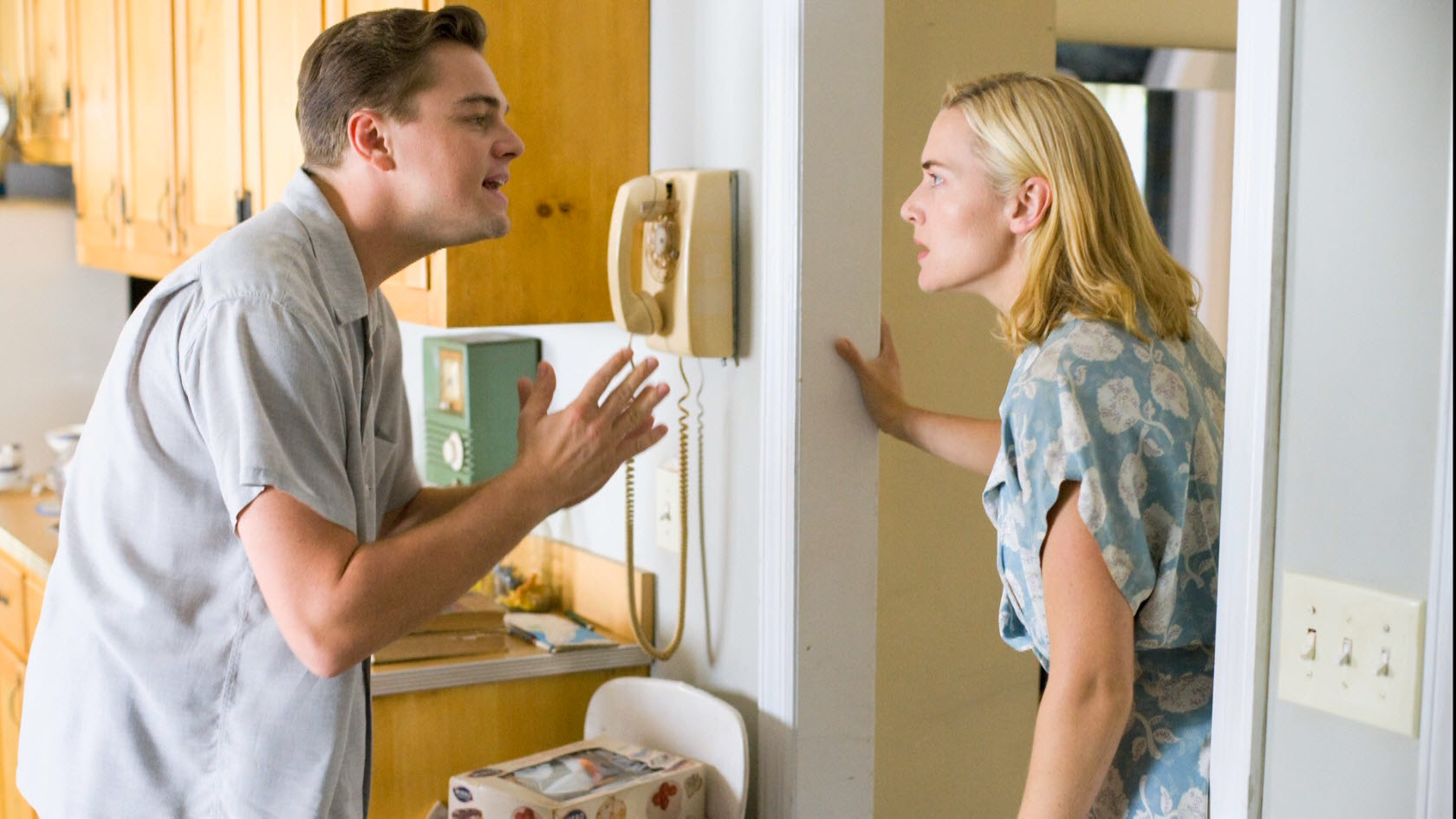
This film is one of Mendes’ relatively recent contributions, starring famous co-stars Leonardo Decaprio and Kate Winslet. Its narrative is an outrageously heavy and painful spy-glass look into the disintegrating marriage of Frank and April Wheeler in 1950s America.
The audience voyeuristically looks on at the time line from when the two begin dating to the nature by which their marriage explosively begins to crumble, and the rawness of the emotional hurt the two inflict upon the other. Their relationship becomes a warped and unhealthy one and even April’s love for her own children becomes compromised.
This unravelling is the result of their pre-occupation with keeping up appearances and playing at the perfect couple, which was the expected lifestyle of the atomic family. It is revealed that the couple in realty both feel achingly empty living their monotonous routine and neither have found satisfaction from the other or their jobs.
An attempt to recapture an initial spark by moving to Paris is halted by the announcement that April is pregnant with her third child and that Frank had been offered a promotion at the job he barely tolerates. Soon Frank’s easy temper flares and in concert with April’s bitterness and emotional reservation, they manage to destroy their fragilely kept together life together.
The film is a tour-de-force exhibition of both lead’s acting acumen as well as a relentless look at how disaster happens in the quiet American household.
6. A Single Man by Tom Ford
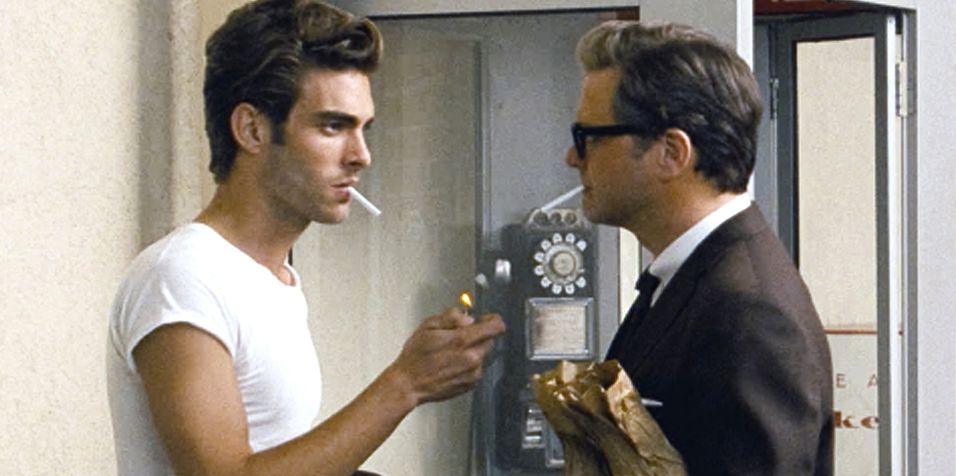
Tom Ford’s first directorial effort is the tender observation of a man’s last day on earth, at the end of the line following his partner’s recent death. Naturally due to the director’s career history the art direction of the film acquired multiple accolades, including an Academy Award nomination.
This study of mid-life crisis is a nearly claustrophic look at every details the bereft George, played by Colin Firth, witnesses in his intended final hours. Every aspect of his day is blown to extraordinary detail and more often than not framed in an artful, almost dream-like fashion.
It leaves very little breathing room and as a result the psychological torment of its main character, including flash-backs to when his partner was alive, takes the forefront of the narrative’s focus. Frequently these detailed, mundane encounters illustrate the benefits of staying alive even without his beloved Jim.
The film manages to traverse a low-key introspective study of a character while avoiding the often-tread trap of dullness. As a result, this dissecting study of the most extreme mid-life crisis, planned suicide, is stretched to its full capacity.
The fact that the film spans only one day requires this level of attention, and the rich amount of character complexity it reveals is certainly wroth it.